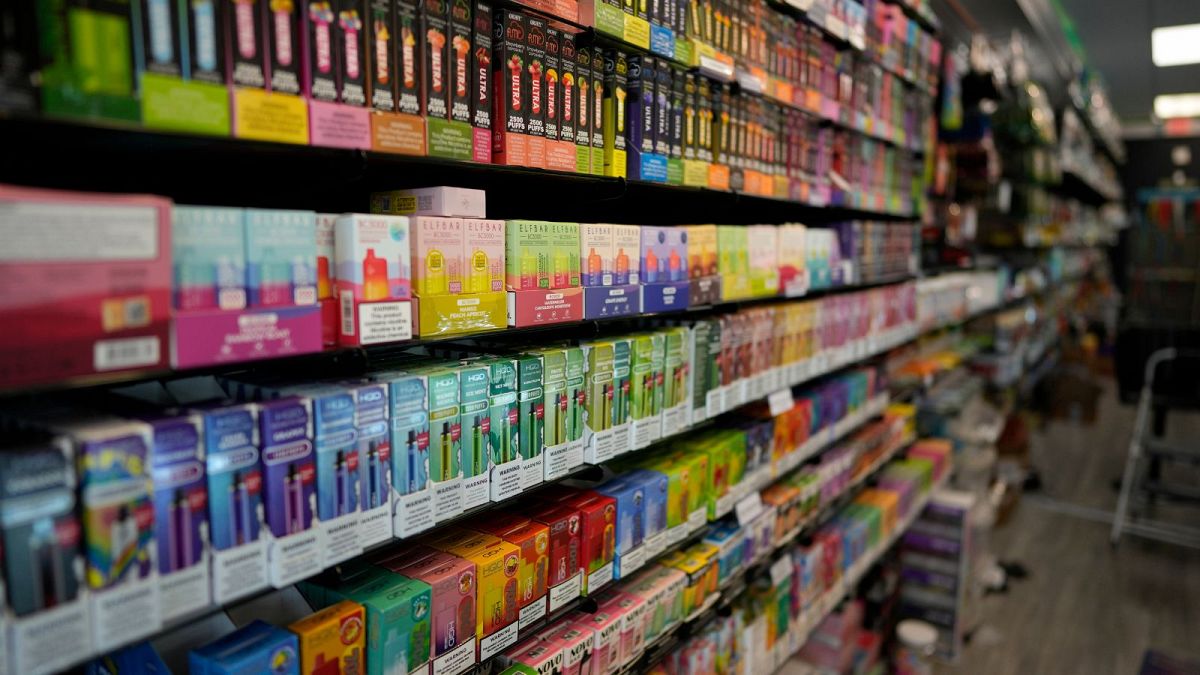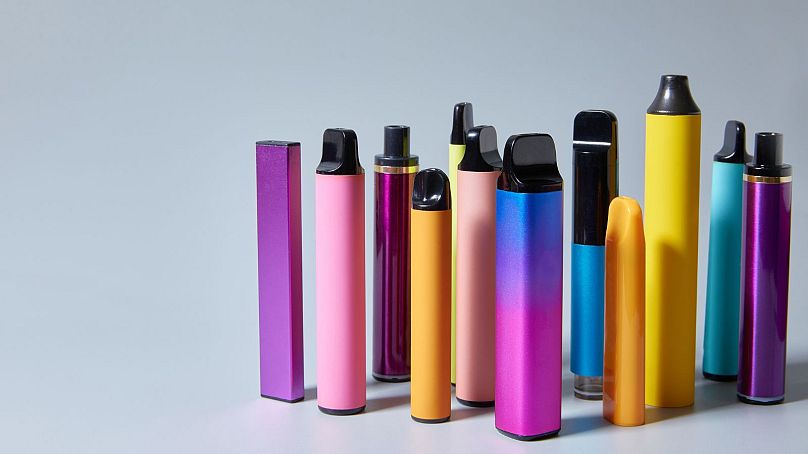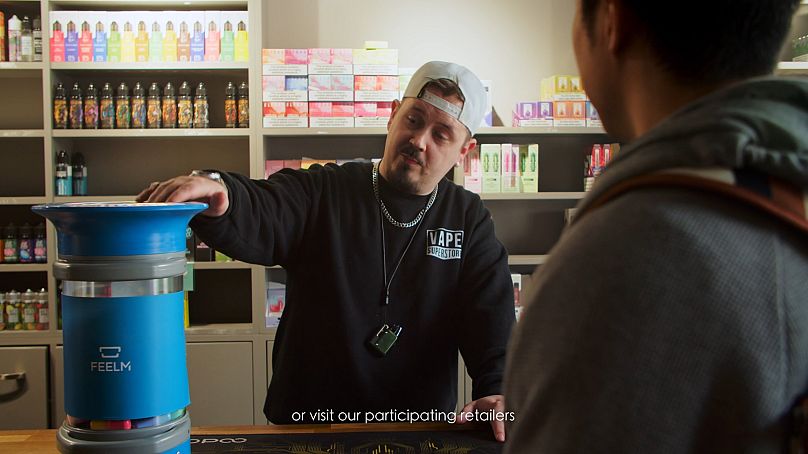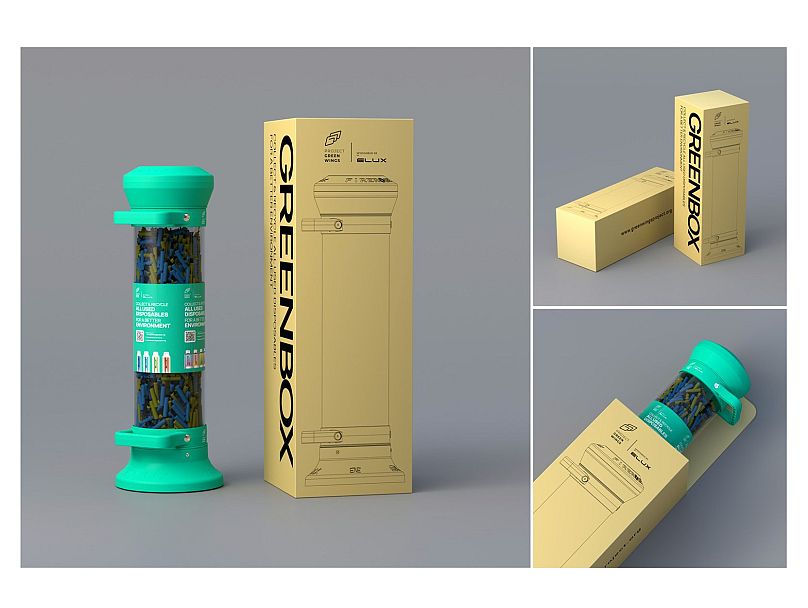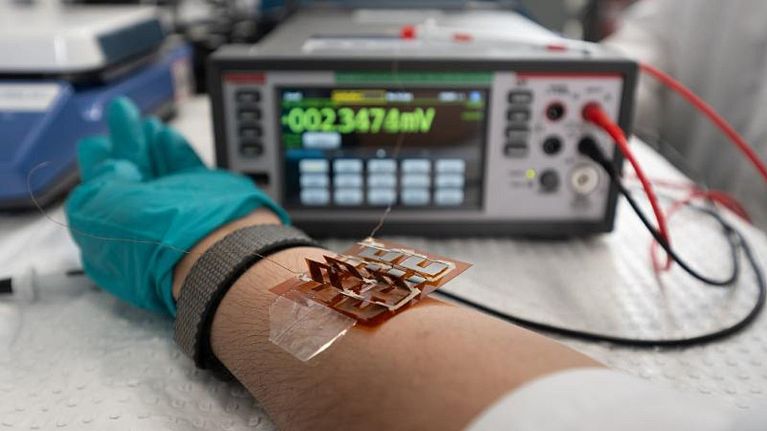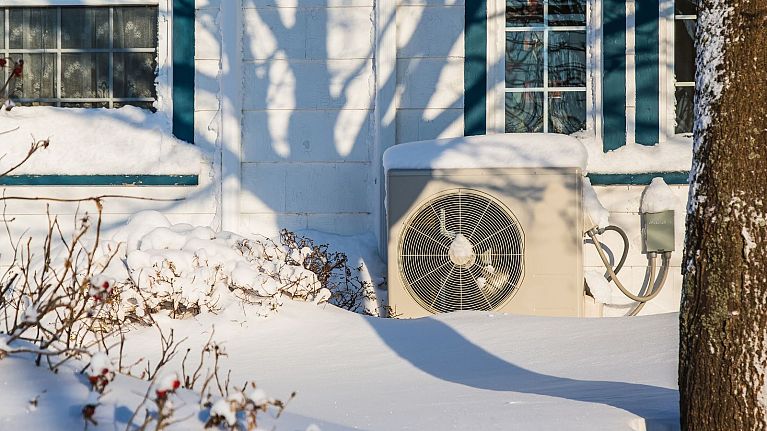Last year, around five million single-use vapes were either littered or thrown away every week in the UK.
The sale of single-use vapes will be banned in the UK from 1 June 2025, the government announced today.
Electronic cigarettes have taken the country by storm in recent years, with a deluge of varieties for sale on the high street. No social gathering is complete in 2024 without someone puffing away in the corner on a small tube that smells of cherry.
Touted as a healthier alternative to tobacco smoking, there are increasing concerns about the health and environmental impacts of vaping.
Last year, an estimated five million single-use vapes were either littered or thrown away in general waste every week in the UK, according government figures. This is almost four times as much as the previous year and the equivalent of eight being thrown away per second.
“Vape pollution is a huge problem currently for the environment,” says Kwok Yan Man, CEO of nonprofit the Green Wings Project.
“Single use e-cigarettes contain precious materials such as aluminium, lithium and stainless steel - all materials that can be used for other functions such as making cars. They are also covered in plastic.”
As regulators scramble to catch up with this complicated new waste form, here’s what is already being done in an attempt to tackle the problem.
Has the UK banned single-use vapes?
The UK government proposed plans to tackle vape disposal last year, as part of a wider reform of e-waste regulations.
Today (24 October), Circular Economy Minister Mary Creagh confirmed that a ban on the sale and supply of single-use vapes will come into force in England on 1 June 2025. A ban will also be introduced in Wales at the same time, while Scotland and Northern Ireland are expected to follow suit.
"Single-use vapes are extremely wasteful and blight our towns and cities," Creagh said in a statement. "That is why we are banning single use vapes as we end this nation’s throwaway culture.
"This is the first step on the road to a circular economy, where we use resources for longer, reduce waste, accelerate the path to net-zero and create thousands of jobs across the country."
Why are vapes so hard to recycle?
75 per cent of UK users admit they ‘never’ recycle their used devices, according to 2023 research from the Green Wings Project.
It’s hard to know what to do with disposable e-cigarettes which are made up of a lithium battery attached to a cartridge and encased in plastic.
As their batteries and circuit boards break down, vapes leach toxic chemicals - from plastic, lead and mercury - into the environment while their casing grinds down into harmful microplastics. If damaged when they are thrown away, lithium batteries can cause fires at waste disposal plants.
And it’s not just that vapes are taking up room in landfill and damaging the environment. Not recycling the lithium and other valuable parts like copper within them also represents a kind of waste given the demand for these metals in our swiftly electrifying world.
On average, vapes contain 0.15g of lithium. In 2022, more than 40 tonnes of lithium from single-use vapes was discarded in the UK - enough to power 5,000 electric vehicles.
Where can you recycle vapes in the UK?
In theory, retailers have a responsibility to help you dispose of e-waste like vapes.
Under UK law, shops are obliged to take back and recycle all small electronic items for free - regardless of whether or not you bought the vape in their shop. Smaller shops that can’t do this themselves are meant to pay a fee to fund the take back, collection and treatment of these products when they become waste.
But that isn’t always clear to vapers or the wider industry, the UK Vape Association has warned.
Where there’s an environmental problem, there’s a host of entrepreneurs popping up to solve it.
Green Wings Project says it has created a “first-of-its-kind” system in the UK to fully recycle the various components of e-cigarettes.
“We have launched a recycling solution which has facilitated the recycling of over 500,000 vapes to date,” said CEO Kwok Yan Man.
The nonprofit provided vape recycling facilities at a number of festivals last summer - in an attempt to catch the empties from young users, a key demographic.
Vape companies, of course, have a vested interest in tackling one of the industry’s major issues. FEELM, which makes ceramic coils used in many popular vape brands, is behind a new initiative encouraging e-smokers to send their single-use devices off for recycling.
Brits can book a free collection slot through the Royal Mail, and receive a free vape for every 10 they return.
As with e-waste more widely, council-run local recycling centres, big supermarkets and electrical stores should all be able to help you out. This map identifies your nearest collection point.












